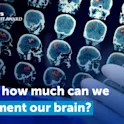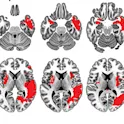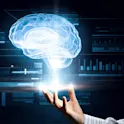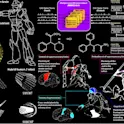Augmentation of Brain Function: Facts, Fiction and Controversy
By Silvia Cardellino, Frontiers Augmentation of brain function is no longer just a theme of science fiction. Due to advances in neural sciences, it has become a matter of reality that a person may consider at some point in life, for example as a treatment of a neurodegenerative disease. Currently, several approaches offer enhancements for sensory, motor and cognitive brain functions, as well as for mood and emotions. Such enhancements may be achieved pharmacologically, using brain implants for recordings, stimulation and drug delivery, by employing brain-machine interfaces, or even by ablation of certain brain areas. This exciting area of research has been deeply explored with the Frontiers Research Topic “Augmentation of Brain Function: Facts, Fiction and Controversy”, hosted by Dr Mikhail Lebedev, Dr Ioan Opris and Dr Manuel Fernando Casanova in Frontiers in Systems Neuroscience. We asked Dr Lebedev to tell us more about this topic. How has this topic idea been developed? “It all started with an invitation letter mailed from Frontiers to Dr. Opris. (Dr. Opris and I co-authored a Frontiers article, which probably prompted that invitation.) The timing was good because Dr. Opris and I were discussing an idea of editing a book. As I work in […]














